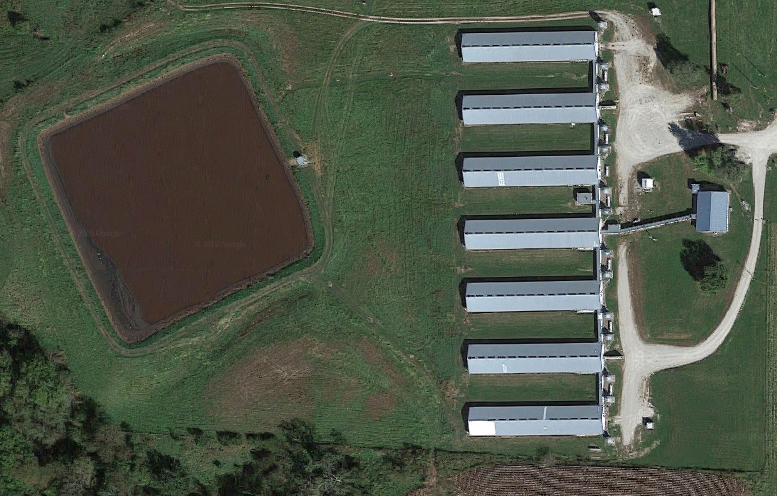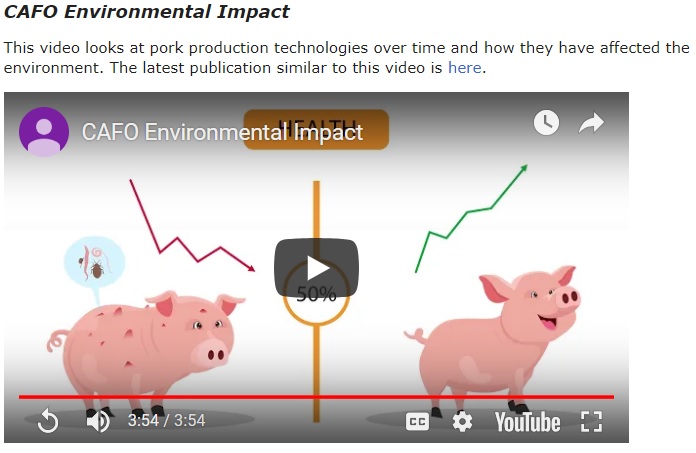
There are a lot of misinformation about the impacts of Concentrated Animal Feeding Operations on our health, on our environment, and on rural communities and economies. MCE has long been fighting the proliferation of CAFOs in Missouri and seek to provide thorough information about their negative impacts on Missourians. In October, the University of Missouri Extension released a series of CAFO cartoon videos intended to educate farmers and the public about the impacts of CAFOs. The videos, however, mislead the public, greatly exaggerating the benefits of CAFOs and irresponsibly ignoring the many environmental and health problems associated with CAFOs. MCE wrote a letter to Dean Kallenbach of MU Extension’s Commercial Agriculture Program, to express our concerns about the videos in detail and to provide a more accurate picture of the impacts of CAFOs. The letter can be read here. We are encouraging MU Extension to remove these videos and issue a public statement incorporating information presented in the letter to provide accurate information to the public. The following are some highlights of the problems with the videos. The criticisms below of the videos are concerns we have about CAFOs in general.
Transparency
The videos are funded in part by the National Pork Board, but nowhere in the videos or on MU Extension’s website is it stated that the National Pork Board funded this project. Since the National Pork Board has a financial interest in painting hog CAFOs in the best possible light to increase pork industry profits, MU Extension needs to make this relationship clear. Additionally, the videos show that the US Pork Center of Excellence, another promoter of the pork industry, played a role in the production of these videos. Due to the involvement of both the National Pork Board and the US Pork Center for Excellence, we question the credibility of videos, described as educational, since pork marketers aided in the project.
Impact on Farmers
The videos present CAFOs as the best or only way for farmers to make a living. However, this is untrue. Alicia Davis of Green Finned Hippy Farm, a small-scale hog producer, states “we do not confine our animals in CAFOs, we are a small farm, and we are making a living.” The increase in large industrial farms has also harmed local communities, replacing human jobs with industrial equipment and practices that harm the environment.
Impact on the Environment
The videos portray CAFOs as positive for the environment. However, CAFOs detrimentally impact the environment in many ways. For example, runoff manure from fields can contaminate waterways and Missouri regulations do not sufficiently protect against this contamination. Missouri CAFOs can self-identify as “export-only,” meaning they send all of their manure to other farms. In these cases, neither the exporting nor receiving farm needs to demonstrate they have proper manure storage, so there is no oversight on the management of manure.
Impact on Human and Animal Health
The videos suggest that hog CAFOs are better for the health of the animals and the health of human consumers. However, CAFOs pose a threat to the health of both animals and humans through the overuse of antibiotics to promote animal growth. This overuse can lead to antibiotic resistance, increasing the risk of disease for the animals and the humans who work at the CAFO or consume the CAFO meat.
Impact on Housing Values
One CAFO cartoon video also downplays the impact of CAFOs on home values, but this impact can be enormous. The video states that “research studies have shown that houses within three miles of a swine farm may lose value” and suggests this effects few people. However, the three-mile radius can impact many homes. For example, in Daviess County which has 13 Class 1 hog CAFOs, the cities of Coffey, Gallatin, Jamesport, and Pattonsburg all fall within the three-mile radius of one or more CAFOs, impacting many people. Please see map for reference.
Over the last year, MCE has been working on our own video about the impacts of industrial agriculture on our environment and our health. We are excited to finally release the video this month. Please take some time to view it and share.

